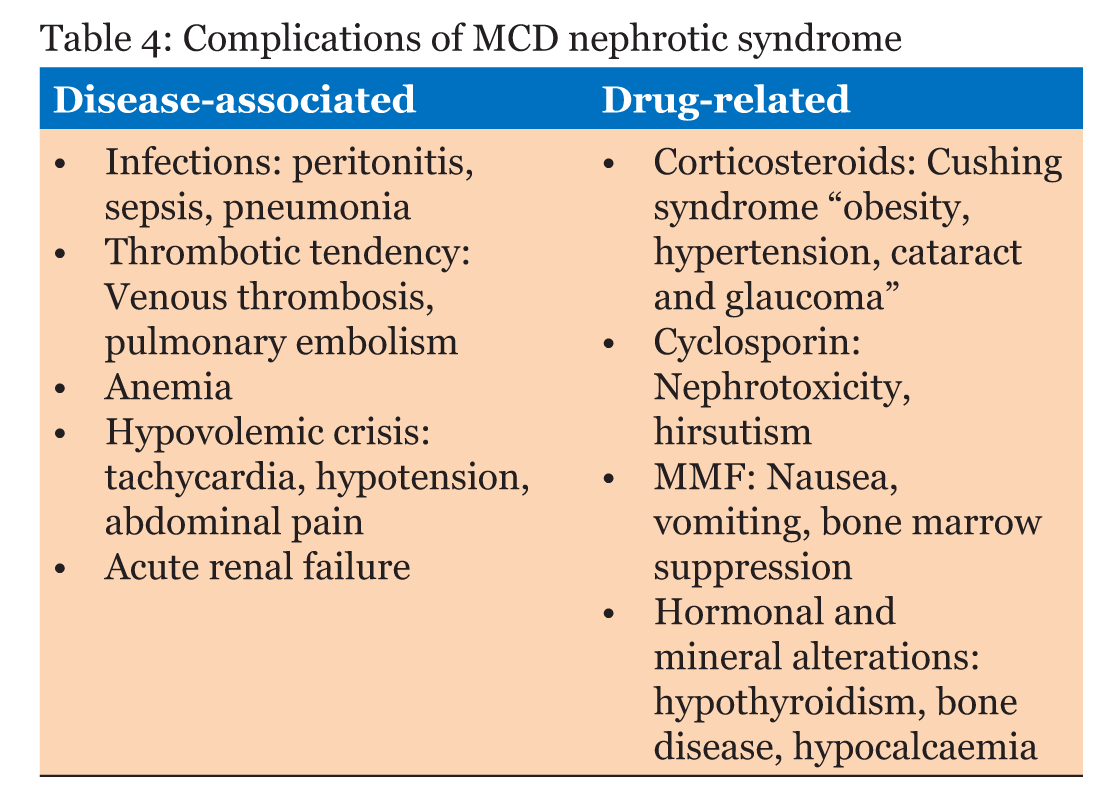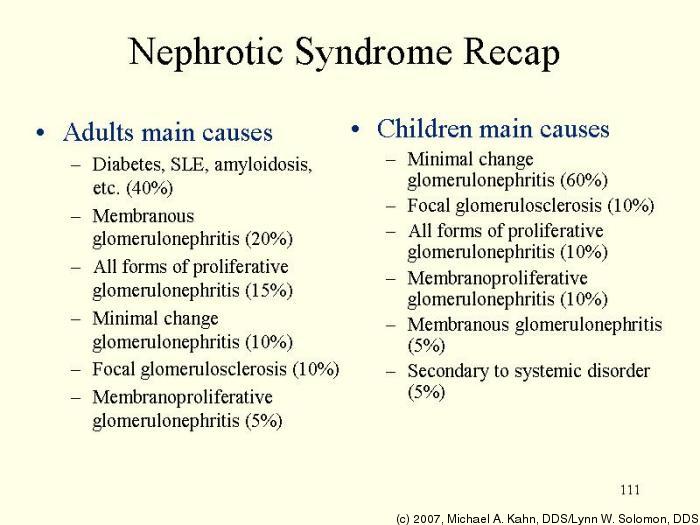Nephrotic Syndrome, often abbreviated as NS, is a kidney disorder that affects the body’s ability to filter waste and excess fluids properly. It leads to an abnormal loss of protein in the urine, causing a range of symptoms and complications. This condition requires careful management and understanding to ensure the best possible outcomes for those affected. In this article, we will explore the intricacies of Nephrotic Syndrome, including its causes, symptoms, and care strategies.

What is Nephrotic Syndrome?
Nephrotic Syndrome is not a disease itself but rather a group of symptoms that indicate kidney damage. The kidneys are responsible for filtering blood, removing waste, and maintaining a balance of fluids and electrolytes in the body. When the kidneys’ filtering units, called glomeruli, become damaged, they allow too much protein to pass into the urine. This results in low levels of protein in the blood, leading to swelling and other complications.
How Does Nephrotic Syndrome Develop?
The development of Nephrotic Syndrome begins with damage to the glomeruli. These tiny clusters of blood vessels in the kidneys act as filters, allowing waste products to leave the body while retaining essential proteins and other substances. When the glomeruli are damaged, they lose their ability to retain proteins, particularly albumin, which plays a crucial role in maintaining fluid balance in the body. As a result, large amounts of protein leak into the urine, leading to the characteristic symptoms of Nephrotic Syndrome.
Causes of Nephrotic Syndrome
Nephrotic Syndrome can be caused by a variety of underlying conditions. These causes can be broadly categorized into primary and secondary types, depending on whether the condition originates in the kidneys or is a result of another disease.
Primary Causes
- Minimal Change Disease: This is the most common cause of Nephrotic Syndrome in children. Despite its name, minimal change disease involves significant changes in the glomeruli that can only be seen under an electron microscope.
- Focal Segmental Glomerulosclerosis: This condition involves scarring in some parts of the glomeruli. It can occur due to genetic factors, infections, or other unknown reasons.
- Membranous Nephropathy: In this condition, the membranes of the glomeruli thicken, leading to protein leakage. It is often associated with autoimmune diseases.
Secondary Causes
- Diabetes: Diabetes is one of the leading causes of kidney damage, including Nephrotic Syndrome. High blood sugar levels over time can harm the glomeruli.
- Lupus: Lupus is an autoimmune disease where the immune system mistakenly attacks healthy tissues, including the kidneys.
- Infections: Certain infections, such as hepatitis B, hepatitis C, and malaria, can lead to kidney damage and Nephrotic Syndrome.
- Medications: Some medications, including nonsteroidal anti-inflammatory drugs and certain antibiotics, can cause kidney damage if used excessively or over long periods.
Symptoms of Nephrotic Syndrome
The symptoms of Nephrotic Syndrome can vary depending on the severity of the condition and the underlying cause. However, there are several hallmark signs that individuals with this condition may experience.
Swelling
One of the most noticeable symptoms of Nephrotic Syndrome is swelling, also known as edema. This swelling typically occurs in the legs, ankles, feet, and around the eyes. In severe cases, it can also affect the hands and abdomen. The swelling happens because the loss of protein in the blood reduces the blood’s ability to hold fluid within the blood vessels, causing it to leak into surrounding tissues.
Foamy Urine
Another common symptom is foamy urine, which occurs due to the presence of excess protein. The protein makes the urine appear frothy or bubbly, which is a clear sign that something is wrong with the kidneys.
Weight Gain
Unexplained weight gain can also occur as a result of fluid retention. This is often one of the first signs that prompts individuals to seek medical attention.
Fatigue and Weakness
Low levels of protein in the blood can lead to fatigue and weakness. Protein is essential for maintaining muscle mass and overall energy levels, so its depletion can leave individuals feeling tired and weak.
Poor Appetite
Many people with Nephrotic Syndrome experience a loss of appetite. This can be due to the buildup of waste products in the blood, which can cause nausea and a general feeling of discomfort.
Diagnosis of Nephrotic Syndrome
Diagnosing Nephrotic Syndrome involves a combination of physical examinations, laboratory tests, and imaging studies. Early diagnosis is crucial for effective management and treatment.
Physical Examination
A healthcare provider will begin by conducting a thorough physical examination. They will look for signs of swelling, particularly in the legs and around the eyes. They may also check for high blood pressure, which is common in individuals with kidney disorders.
Urine Tests
Urine tests are essential for diagnosing Nephrotic Syndrome. A dipstick test can detect the presence of protein in the urine, while a more detailed urinalysis can measure the exact amount of protein being lost. A 24-hour urine collection may also be performed to assess protein excretion over a full day.
Blood Tests
Blood tests are used to measure the levels of protein, particularly albumin, in the blood. Low levels of albumin are a key indicator of Nephrotic Syndrome. Blood tests can also assess kidney function by measuring creatinine and blood urea nitrogen levels.
Imaging Studies
In some cases, imaging studies such as an ultrasound or CT scan may be used to evaluate the structure and function of the kidneys. These tests can help identify any abnormalities or blockages that may be contributing to the condition.
Kidney Biopsy
A kidney biopsy may be necessary to determine the underlying cause of Nephrotic Syndrome. During this procedure, a small sample of kidney tissue is removed and examined under a microscope. This can provide valuable information about the type and extent of kidney damage.
Treatment and Care for Nephrotic Syndrome
The treatment and care for Nephrotic Syndrome focus on managing symptoms, addressing the underlying cause, and preventing complications. While there is no cure for Nephrotic Syndrome, many individuals can achieve remission with proper care.
Medications
Several medications are commonly used to treat Nephrotic Syndrome:
- Corticosteroids: These are often the first line of treatment, particularly in children with minimal change disease. Corticosteroids help reduce inflammation and suppress the immune system, which can help decrease protein loss.
- Immunosuppressants: For individuals who do not respond to corticosteroids, immunosuppressant medications may be prescribed. These drugs help control the immune system and prevent further kidney damage.
- Diuretics: Diuretics, also known as water pills, help reduce swelling by increasing urine production and eliminating excess fluid from the body.
- Anticoagulants: Due to the increased risk of blood clots in individuals with Nephrotic Syndrome, anticoagulant medications may be prescribed to prevent clot formation.
Dietary Changes
Diet plays a crucial role in managing Nephrotic Syndrome. A healthcare provider or dietitian may recommend the following dietary changes:
- Low-Sodium Diet: Reducing sodium intake can help decrease swelling and lower blood pressure.
- Protein Intake: While protein is essential, excessive protein intake can strain the kidneys. A balanced approach is necessary to ensure adequate nutrition without overburdening the kidneys.
- Fluid Restriction: In cases of severe swelling, fluid intake may need to be restricted to prevent further fluid retention.
Monitoring and Follow-Up
Regular monitoring and follow-up appointments are essential for managing Nephrotic Syndrome. Healthcare providers will monitor kidney function, protein levels, and overall health to ensure that the treatment plan is effective. Adjustments to medications or lifestyle changes may be necessary based on the individual’s response to treatment.
Preventing Complications
Nephrotic Syndrome can lead to several complications, including infections, blood clots, and kidney failure. Preventive measures include:
- Vaccinations: Staying up-to-date with vaccinations can help prevent infections, which are more common in individuals with Nephrotic Syndrome.
- Blood Pressure Control: Maintaining healthy blood pressure levels is crucial for protecting kidney function.
- Regular Exercise: Moderate exercise can help improve overall health and reduce the risk of complications.
Living with Nephrotic Syndrome
Living with Nephrotic Syndrome requires ongoing commitment to managing the condition. While it can be challenging, many individuals are able to lead fulfilling lives with the right care and support.
Emotional Support
Dealing with a chronic condition like Nephrotic Syndrome can take a toll on mental health. It is important for individuals to seek emotional support from family, friends, or support groups. Counseling or therapy may also be beneficial for managing stress and anxiety related to the condition.
Educating Yourself
Understanding Nephrotic Syndrome and its management is empowering. Individuals should work closely with their healthcare providers to learn about their condition, treatment options, and ways to maintain kidney health.
Staying Active
Physical activity is important for overall health and well-being. While it is essential to avoid overexertion, regular, moderate exercise can help improve strength, endurance, and mood.
Adhering to Treatment Plans
Following the prescribed treatment plan is crucial for managing Nephrotic Syndrome effectively. This includes taking medications as directed, attending regular check-ups, and making necessary lifestyle changes.
Research and Advances in Nephrotic Syndrome
Ongoing research is focused on better understanding the causes of Nephrotic Syndrome and developing new treatments. Advances in genetics, immunology, and nephrology are paving the way for more targeted therapies and improved outcomes for individuals with this condition.
Genetic Studies
Researchers are exploring the genetic factors that contribute to Nephrotic Syndrome. Identifying specific genes involved in the condition can lead to personalized treatment approaches and early interventions.
New Medications
Several new medications are currently being studied for their potential to treat Nephrotic Syndrome. These include drugs that target specific pathways involved in kidney damage and protein loss.
Improved Diagnostic Tools
Advances in diagnostic tools, such as biomarkers and imaging techniques, are helping healthcare providers detect Nephrotic Syndrome earlier and with greater accuracy. This allows for timely intervention and better management of the condition.





